Recent Headlines
SUNY ESF Welcomes New Faculty for 2023-24 Academic Year
The SUNY College of Environmental Science and Forestry (ESF) — one of the nation’s premier colleges focused exclusively on the study of the environment, developing renewable technologies, and building a sustainable future — welcomes 22 new faculty members to the College for the 2023-24 academic year.
“The ESF community extends a warm welcome to our new and talented faculty who represent a remarkable cohort of educators, scientists, and researchers. Their experience, perspectives, and knowledge will play a crucial role in advancing our mission and inspiring future environmental leaders,” said ESF President Joanie Mahoney.
“These distinguished new faculty will undoubtedly enrich our students’ academic experience and contribute to the continued growth and diversity of ESF. Not only do they strengthen our existing expertise, but they expand our knowledge and research capabilities,” said Dr. Samuel Mukasa, ESF’s Executive Vice President and Provost.
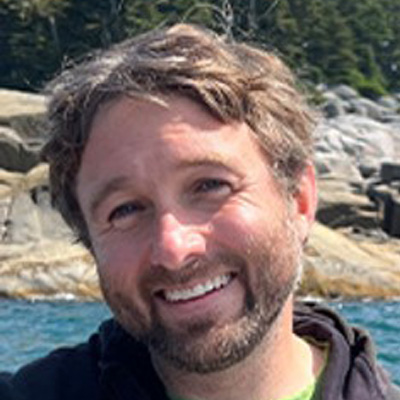
Dr. Kyle Artelle is an Assistant Professor in the Department of Environmental Biology within the Indigenous Environmental Science cluster. He has experience managing multiple projects in ecology, conservation, and stewardship, and working with Indigenous groups in British Columbia, especially Haíɫzaqv and neighboring First Nations. He most recently served as an Adjunct Professor at the University of Victoria. Artelle has a Ph.D. in Biological Sciences from Simon Fraser University and a B.S. in Biology and Environmental Studies from the University of Victoria. He was a Banting Postdoctoral Fellow at the University of British Columbia-Okanagan from 2021 to 2023.
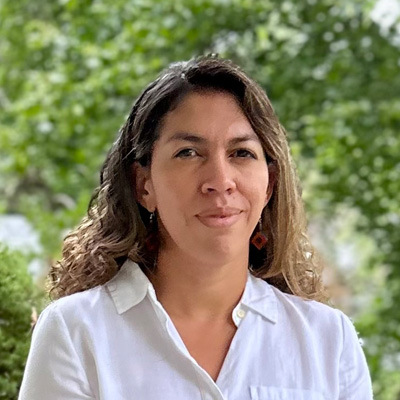
Dr. Mariela Cavo is an Assistant Professor in the Sustainable Resources Management Department within the Bioeconomy cluster. Her research focuses on environmental economics, forest economics, economic valuation of ecosystem services, and input-output modelling. Since 2017, she has taught a wide variety of courses as instructor and lecturer at ESF and LeMoyne College. Cavo received a Ph.D. in Environmental Science from the University of Rey Juan Carlos, a master’s in Rural Development from the Polytechnic University of Madrid, and a master’s in Forest and Natural Resources Management from ESF.
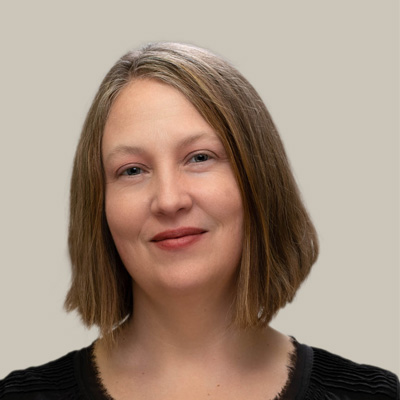
Dr. Jess Fenn is an instructor in ESF’s Writing Program. She worked as a public radio reporter in Alaska after earning a B.A. in English and Creative Writing from Swarthmore College. Fenn holds a Ph.D. in English and Comparative Literature from Columbia University, a Master’s in Teaching from Hollins University, and an M.F.A. in Fiction from Syracuse University, where she won the Joyce Carol Oates Prize in Fiction. Her work has appeared in Boston Review, Gulf Coast, DIAGRAM, and more. A Tin House alumna whose writing has been supported by the Key West Literary Seminar, Disquiet, Writing by Writers, and the Orion Environmental Writing Workshop, Fenn taught at SUNY Geneseo and Birkbeck College, University of London before coming to ESF.
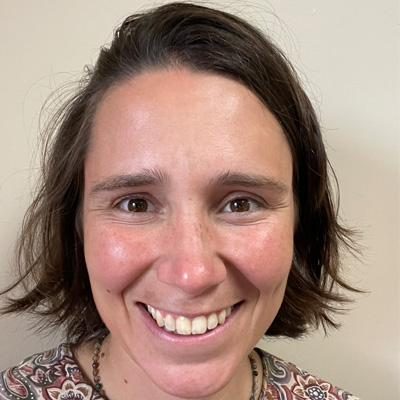
Dr. Christine Georgakakos is an Assistant Professor in the Environmental Resources Engineering Department within the Water Science cluster. She joins ESF from the University of Connecticut, where she was a USDA Postdoctoral Fellow after receiving her Ph.D. from Cornell University. Her research interests center on water quality issues at the intersection of sustainable agriculture and environmental engineering. Her current projects involve antimicrobial usage, impact, and residue transport.
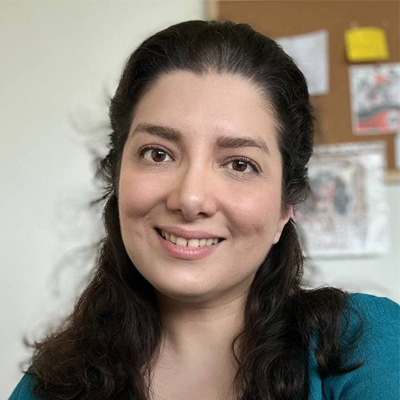
Dr. Nazanin Ghaffari is an Assistant Professor in the Department of Landscape Architecture. Prior to joining ESF, she was awarded the Social Science Research Council Arts Research with Communities of Color Fellowship. She was also an Adjunct Assistant Professor at the University of Texas at Arlington. Ghaffari earned a Ph.D. from the University of Texas at Arlington in Urban Planning and Public Policy; a Master of Arts in Urban Design; and a Bachelor of Architecture from Azad University in Tehran, Iran.
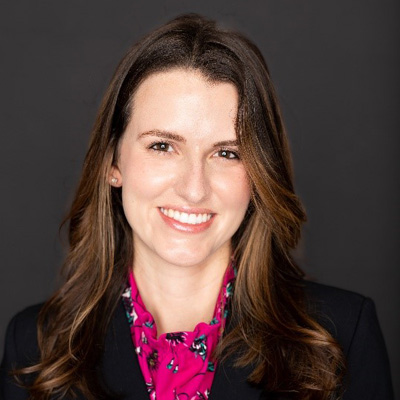
Dr. Jennifer Goff is an Assistant Professor in the Department of Chemistry within the Biochemistry cluster. She is an environmental microbiologist whose research at ESF will examine how complex combinations of environmental stressors impact the activities of key microbial populations and investigate microbial adaptive evolution in the context of these stressors with a particular focus on the role of mobile genetic elements in this process. She was previously a Postdoctoral Research Associate at the University of Georgia. Goff received a Ph.D. in Microbial Biology from Rutgers and B.S. in Biology from Georgia Tech.
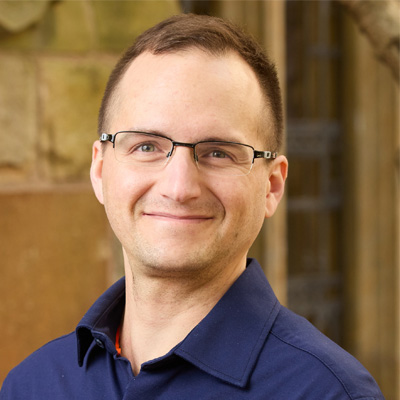
Dr. Cole D. Gross is an Assistant Professor in the Department of Sustainable Resources Management within the Bioeconomy cluster. He is a soil scientist focusing on carbon cycling in forests, grasslands, and agroecosystems (e.g., agroforestry systems) in response to human land-use and management decisions and climate change. Prior to ESF, he was at the Yale School of the Environment, the University of Alberta, and the University of Washington. He earned a Ph.D. in Soil Science from University of Alberta, an MSc in Environmental and Forest Sciences from the University of Washington, and a B.A. in Philosophy/Religious Studies with a concentration in Environmental Studies/Natural Science from University of West Florida.
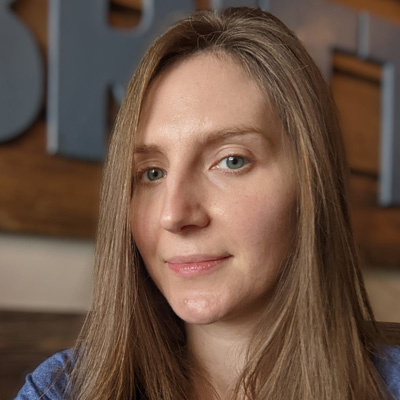
Addie Hopes is an Instructor in ESF’s Writing Program. She is a published author, as well as a nonfiction and fiction editor on multiple editorial boards, including NiCHE (Network in Canadian History and Environment) and The Hopper. Prior to ESF, she taught at the University of Wisconsin-Madison, Ursuline College, Lake Erie College, Kent State University at Ashtabula, and Montclair State University. Hopes received an M.F.A. in Fiction Writing from Brooklyn College, CUNY, and an M.A. in Literary Studies from the University of Wisconsin-Madison, where she is currently completing a Ph.D. in Literature and the Environmental Humanities; she earned a B.A. in Creative Writing from Sarah Lawrence College.
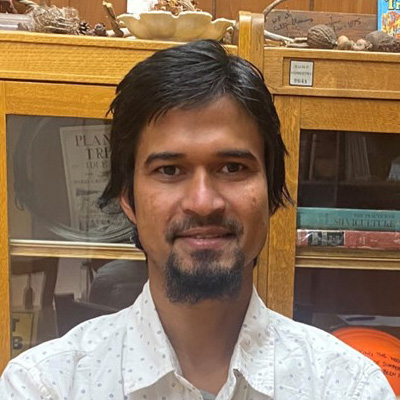
Dr. Mohammad Uzzal Hossain is an Assistant Professor in the Department of Sustainable Resources Management within the Bioeconomy cluster. Previously, he worked as a research associate at the Department of Civil and Environmental Engineering at the University of Pittsburgh; research assistant professor at the Department of Civil Engineering at the University of Hong Kong; research fellow at the University of Central Florida; and postdoctoral fellow at the University of Hong Kong. He has published over 50 articles in different high-impact journals, successfully completed different projects as PI or Co-PI, and achieved several awards. Hossain obtained a Ph.D. from the Department of Civil and Environmental Engineering at the Hong Kong Polytechnic University.
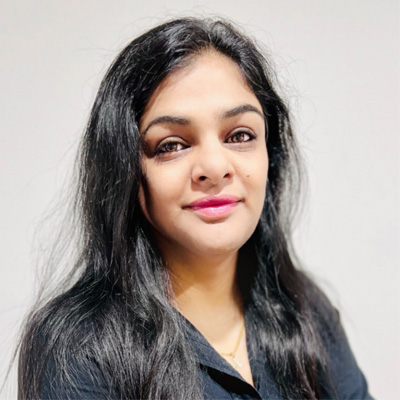
Dr. Ankita Juneja is an Assistant Professor in the Department of Chemical Engineering within the Bioeconomy cluster. Prior to joining ESF, Juneja was the director of the Biotechnology program and professor of practice in the Department of Biology at Syracuse University. She also was a lead fermentation scientist IV at Archer Daniels Midland and a postdoctoral research associate at the University of Illinois at Urbana Champaign. Juneja earned a Ph.D. in Biological Engineering from Oregon State University and an M.S. in Agricultural Engineering from the University of Georgia. At ESF, her research will focus on integrating thermochemical, biochemical, and biological conversion pathways of biomass for sustainable production of value-added products and biofuels. She will also work on nutrient cycling and carbon capture utilizing microalgae.
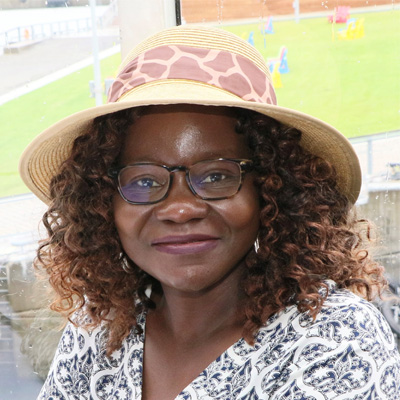
Dr. Jean Kayira is an Associate Professor in the Department of Environmental Studies. Previously, she was an Associate Professor and Director of the Environmental Studies Ph.D. program at Antioch University New England in New Hampshire. In addition to her ongoing research projects, she is also engaged in a long-term national initiative to build capacity and improve environmental literacy while centering justice, equity, and inclusion among environmental educators. The initiative, known as ee360, is a collaborative agreement between the Environmental Protection Agency and the North American Association for Environmental Education. She will also work collaboratively with the Indigenous Environmental Science faculty cluster. Kayira earned a Ph.D. in Environment & Sustainability from the University of Saskatchewan; an M.A. in Environmental Science and Policy from Clark University; and a B.Ed. Science from the University of Malawi Chancellor College.
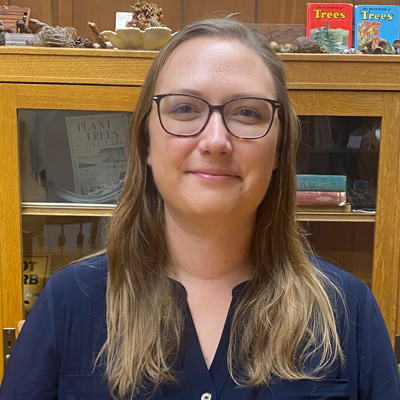
Dr. Danielle Kloster is an Assistant Professor in the Department of Sustainable Resources Management within the Bioeconomy cluster, with a focus on human dimensions. She has been a lecturer at ESF since 2019, teaching technical writing, environmental physics, and courses supporting the Sustainable Energy Management program. Kloster received a Ph.D. from the University of Connecticut in Natural Resources, as well as an M.S. and B.S. in Environmental Science from ESF.
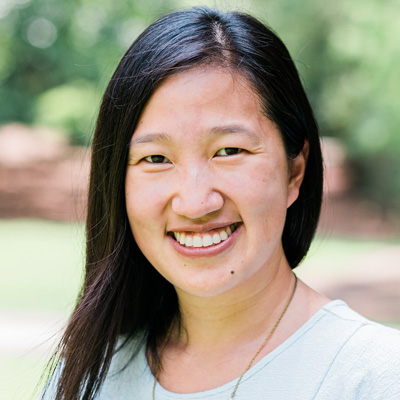
Deborah Ku is an Assistant Professor in the Department of Landscape Architecture. She was previously an assistant professor in architecture at Auburn University, where she coordinated and taught the first-year architecture curriculum. She earned her Master of Architecture and Bachelor of Science in Architecture from the University of Virginia.

Dr. Eun Kyung Lee is an Assistant Professor of Environmental Health and Environmental Justice in the Department of Environmental Studies. Lee’s academic background and training span from applying data-driven and causal inference methods to understand exposure-health relationships, to community-driven approaches to understand the lived experiences and intervention strategies that are reflective and adaptive to community’s needs. Lee received her Ph.D. in Environmental Health Sciences from the University at Albany, SUNY; a Master’s in Public Health from Tufts University School of Medicine; and a bachelor’s degree dual majoring in Chemistry and Biology from Minnesota State University, Moorhead.
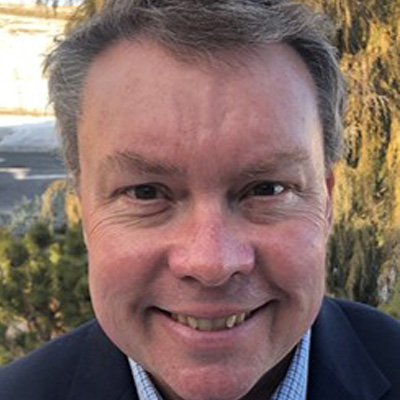
Dr. Joshua Millspaugh is Camp Fire Conservation Fund Professor of Wildlife Conservation within the Department of Environmental Biology. Previously, he served on the faculty within the Department of Fisheries and Wildlife Sciences at the University of Missouri, where he was the Pauline O’Connor Distinguished Professor of Wildlife Management. He currently serves as the Boone and Crockett Chair of Wildlife Conservation at the University of Montana. Millspaugh has a Ph.D. in Wildlife Ecology from the University of Washington, Seattle, an M.S. in wildlife science from South Dakota State University, and a B.S. in Environmental and Forest Biology from ESF.
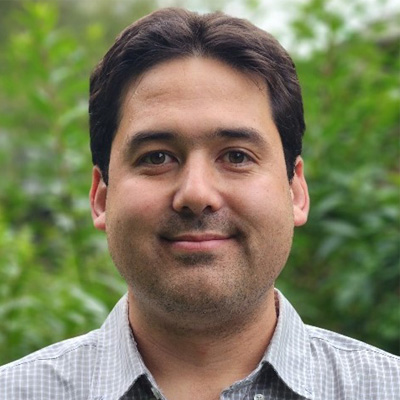
Dr. Aaron Ninokawa is an Assistant Professor in the Department of Chemistry. Prior to ESF, he was a National Science Foundation postdoctoral fellow at the University of Washington’s Friday Harbor Laboratories. Ninokawa received a Ph.D. in Ecology from the Bodega Marine Laboratory at the University of California, Davis, and a B.S. in Biology and a B.A. in Chemistry from California State University, Fullerton.
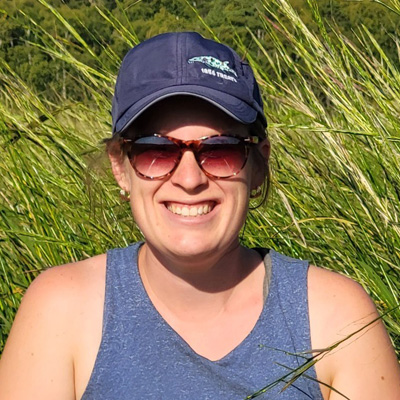
Madeline Nyblade is an Assistant Professor in the Department of Environmental Studies within the Indigenous Environmental Science cluster. She is completing her Ph.D. at the University of Minnesota - Twin Cities in Earth and Environmental Sciences with a graduate minor in American Indian and Indigenous Studies. Her graduate research explores the intersecting impacts of climate and land-use change on Wild Rice (Ojibwemowin: Manoomin; Dakodiapi: Psiŋ; Latin: Zizania palustris) across the upper Great Lakes region in partnership with several tribal nations and inter-tribal treaty organizations. Nyblade earned a B.S. in Geoscience from Penn State.
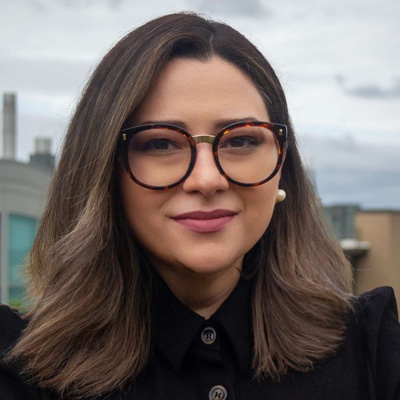
Dr. Tania Konstantina Ploumi is an Assistant Professor within ESF’s Open Academy, which houses the College’s online education programs. She holds a doctoral degree in Environmental Science from UMass Boston with a focus on Environmental Psychology and Ecosystem Services, following public participatory map-based approaches. She previously earned an M.Sc. in Ecosystem Services from the University of Edinburgh and a B.Sc. in Marine Science at the Aegean University. Throughout her academic studies, Dr. Ploumi has earned multiple awards, fellowships, and grants. Her previous non-academic professional experience includes roles such as ecological project manager, environmental communication coordinator, and environmental education in Scotland and Greece.

Dr. Richard Ross Shaker is an Assistant Professor in the Department of Sustainable Resources Management within the Bioeconomy cluster. Previously, he was an associate professor of Environmental and Urban Sustainability at Toronto Metropolitan University and served on the faculty at Binghamton University. Shaker earned a Ph.D. and M.Sc. from the University of Wisconsin-Milwaukee, and a B.Sc. from the University of Wisconsin-LaCrosse. His future applied research looks at operationalizing sustainable development across spatial and temporal scales, while theoretically focusing at the nexus of evolutionary theory, learning and behavior change, planning and policy responses.

Dr. Ellen Oettinger White is an Assistant Professor in the Department of Landscape Architecture. Previously, she was at Rutgers University, where she completed her Ph.D. at the Bloustein School of Planning and Public Policy. She also worked as an urban designer at a street design firm in New Jersey and as a transportation planning consultant in cities and towns around the country. She serves as secretary of the Transportation Research Board’s Landscape and Environmental Design Committee and was a 2021-22 Landscape Architecture Foundation Fellow for Innovation and Leadership. White holds a Master of Landscape Architecture from Rutgers University and a master’s degree in urban planning from Harvard University Graduate School of Design.

Jean Yang is an Assistant Professor in the Department of Landscape Architecture. She worked as a senior associate at Studio-MLA and has taught at UCLA, Cal Poly Pomona, and the University of Oregon as a Spatial Justice Fellow. She received the Azure Award for Urban Design Vision, the Southern California ASLA Merit Award, and two National ASLA Honor Awards. Yang has a Master’s degree in Urban Planning from UCLA, a Master’s in Landscape Architecture from the University of Southern California, and a Bachelor of Arts degree in Economics and Government from Cornell University.

Dr. Nathan Young is an Assistant Professor in the Sustainable Resources Management Department within the Water cluster. His research draws on the disciplines of hydrology, hydrogeology, and soil physics to better characterize how heat, water, and solutes move in natural and managed environments. Prior to joining the faculty at ESF, he was a postdoc in the Department of Geology and Geological Engineering at Université Laval in Quebec City, Quebec. Dr. Young earned a Ph.D. from Iowa State University, with majors in Geology and Environmental Science; a master’s in Earth and Environmental Science from Wright State University; and a B.A. in Geology and Sociology/Anthropology from Earlham College.
About SUNY ESF
The SUNY College of Environmental Science and Forestry (ESF) is dedicated to the study of the environment, developing renewable technologies, and building a sustainable and resilient future through design, policy, and management of the environment and natural resources. Members of the College community share a passion for protecting the health of the planet and a deep commitment to the rigorous application of science to improve the way humans interact with the world. The College offers academic programs ranging from the associate of applied science to the Doctor of Philosophy. ESF students live, study and do research on the main campus in Syracuse, N.Y., and on 25,000 acres of field stations in a variety of ecosystems across the state.